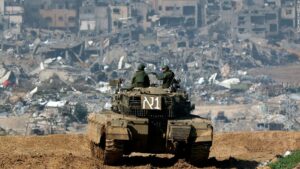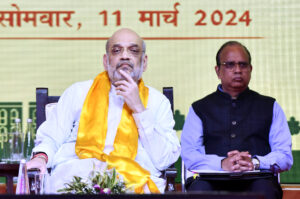Waking the dread – Leisure News
[ad_1]
Released in 1999, The Matrix made literal a well-worn philosophical belief, the world around us is only a simulation. In one of its most iconic scenes, Neo, a messiah for the internet age, is asked to choose between two pills, one blue and the other red. While the blue pill would allow him to forever live in blissful ignorance, the red pill offers realisation, an understanding of stark and uncomfortable truths, a chance to see how deep the rabbit hole of technology, control and consciousness really goes.
Speaking to INDIA TODAY via Zoom, author Hari Kunzru confesses he was a fan of The Matrix: “The film puts our sense of reality on pause and reality is then seen as being this constructed thing, I thought it was a fantastic film.” Like Neo, the narrator of Kunzru’s latest novel, Red Pill, also sometimes loses himself in the labyrinth that is the internet but, unlike Neo, he is no hacker. He is a writer who finds himself bored in Berlin. Having been awarded a fellowship at the prestigious Deuter Centre, he hopes to write about the construction of ‘self’ in lyric poetry. Tragically, however, a full-blown middle-age crisis leaves him too self-involved to work. He spends much of his time binge-watching Blue Lives, an American cop show whose nihilism, he finds, is as disturbing as its violence.
Appropriated by America’s alt-right, the term “red-pilling” is often employed to describe a political radicalisation, an awakening that vilifies all liberal and progressive values. Anton, the creator of Blue Lives, offers the narrator similar knowledge after he meets him at a Berlin party. Kunzru’s narrator finds it hard to swallow. His mind, as a result, quickly begins to unravel. His response to Anton’s terror, though, is not wholly unreasonable. His madness is not without method. “He is at his sanest when he is in the midst of his breakdown,” says Kunzru. “His apprehension of the world is a true apprehension.”
In a novel that tackles several questions of personhood, it somehow makes sense that the first-person ‘I’ is never given a name. “It was a way of drawing the reader into some kind of complicity with the narrator and giving him an instability as well,” says Kunzru. As the fears of Kunzru’s narrator start to get the better of him, it becomes hard to not think of his turmoil as universal. Like him, we have all, at some point or another, wondered, “If the world changed, would I be able to protect my family?” We, too, have asked if our privacy has become a casualty of increased surveillance. We’ve all broken down. It proves hard to put down Red Pill. You want to know what happens to the narrator, but Kunzru also does something uncanny, he persuades you that his protagonist’s tragedies could well be yours.
Kunzru has given the narrator some of his biography. They both live in Brooklyn. Kunzru, too, spent a part of 2016 at a writer’s residency in Berlin. They have Indian fathers and they both sometimes worry about their children’s safety. Kunzru, 50, is now the father of a seven-year-old son and a four-year-old daughter. Being a parent, he says, has transformed him. “Having children changed a lot of things for me. As a man, I think, you move through space with relative confidence. I remember being more concerned about being threatening to other people than being threatened myself. And then, suddenly, as a father, I was aware of this sense of risk which I try calculating and managing at all times.”

What separates the narrator from Kunzru is, perhaps, his individualism. “What he lacks is solidarity with others. He feels isolated. One route that he might have to deal with his fears is to be part of something larger than himself,” says Kunzru. As the novel inches closer to its denouement, the 2016 US presidential election, Kunzru lends his protagonist the one consolation that softens his own world: the pleasures of family. The narrator finds in reciprocity comforts his singularity never affords.
At one point in Red Pill, the narrator asks, “What if the reasonable reaction [to terror] is endless horrified screaming?” When the same question is put to Kunzru, he says, “The world is unliveable, yes. It is terrible, but, yet, we have to continue. That’s the kind of everyday heroism that we have to try and find in ourselves.” Red Pill, Kunzru’s sixth novel, leaves us squarely in the here and now, Donald Trump as leader of the free world. With the 2020 election around the corner, is the author worried that history might repeat itself? He says he thinks Trump will lose, “but if there is a disputed result, if he is able to muddy the waters enough, this could be the last democratic moment of the US.” In the end, one feels Kunzru’s narrator had it right all along. The only life worth living is the one without fear.
[ad_2]
Source link







